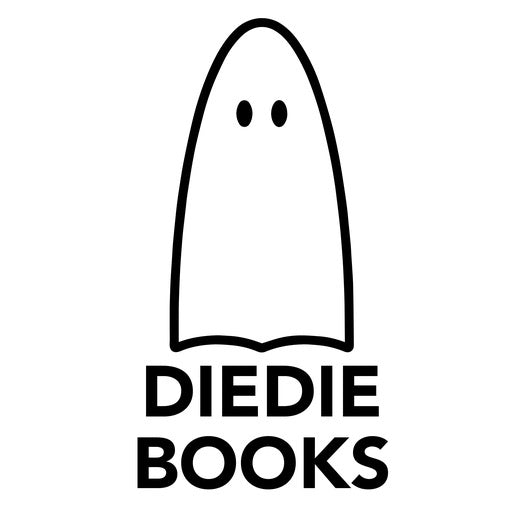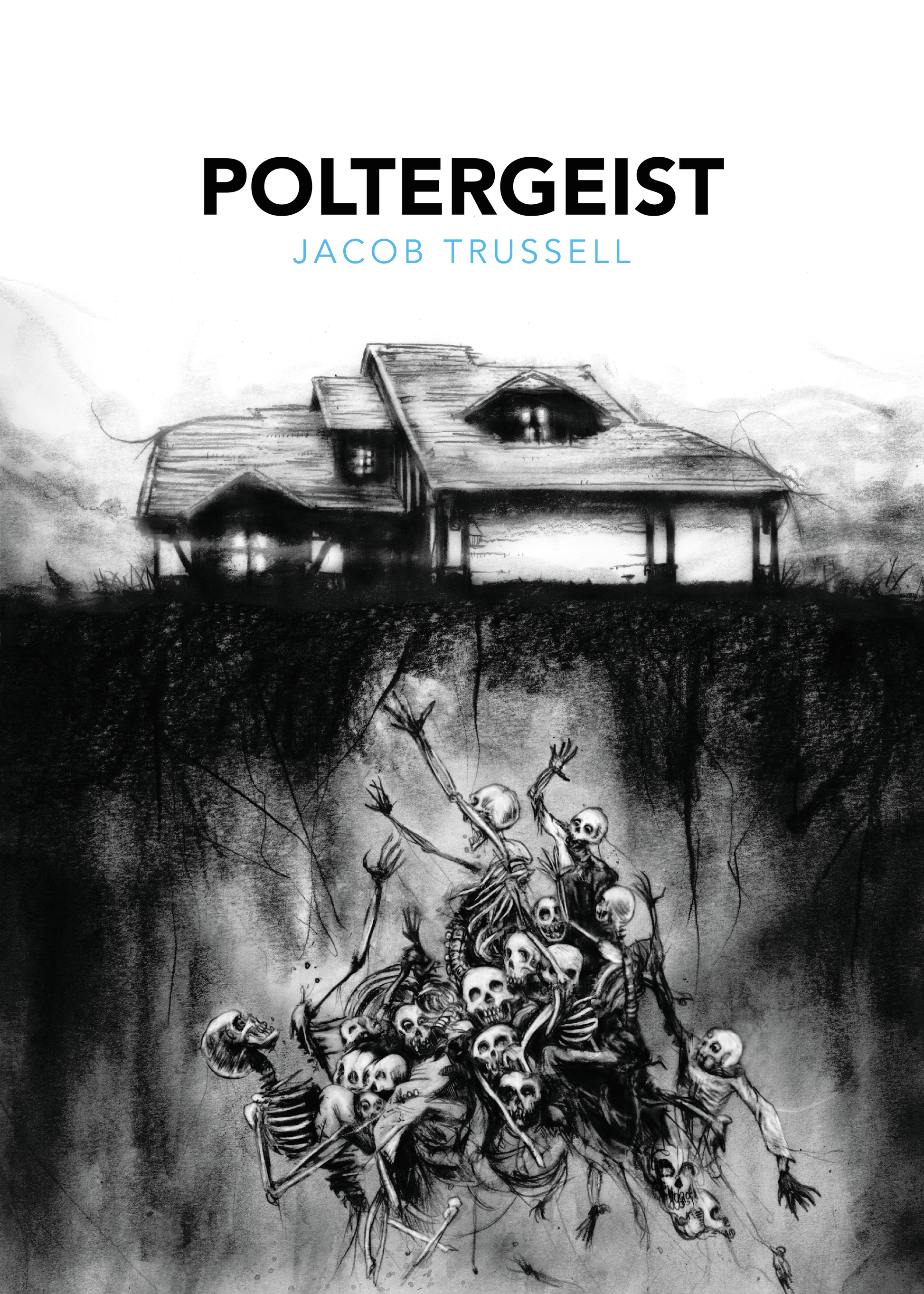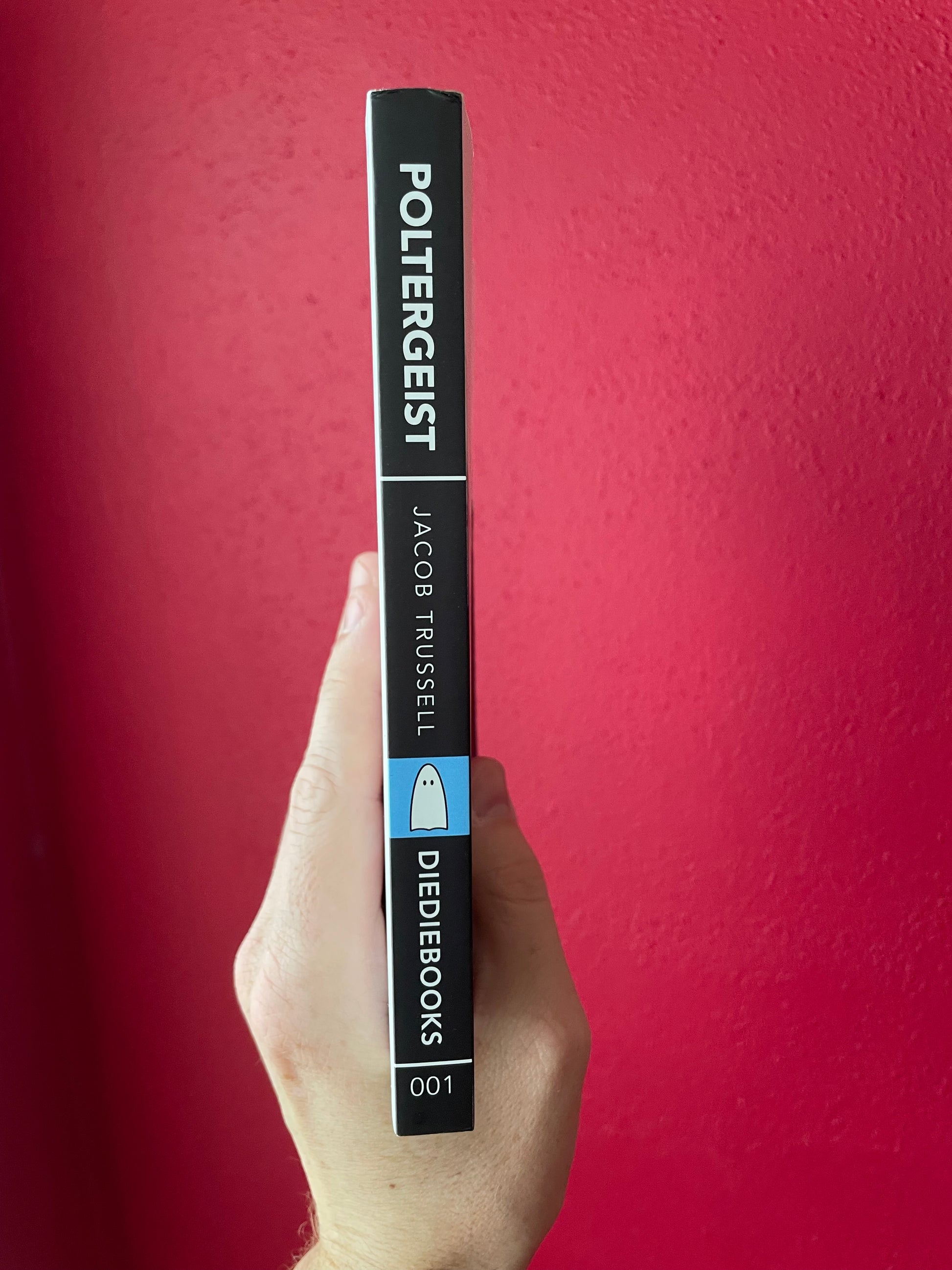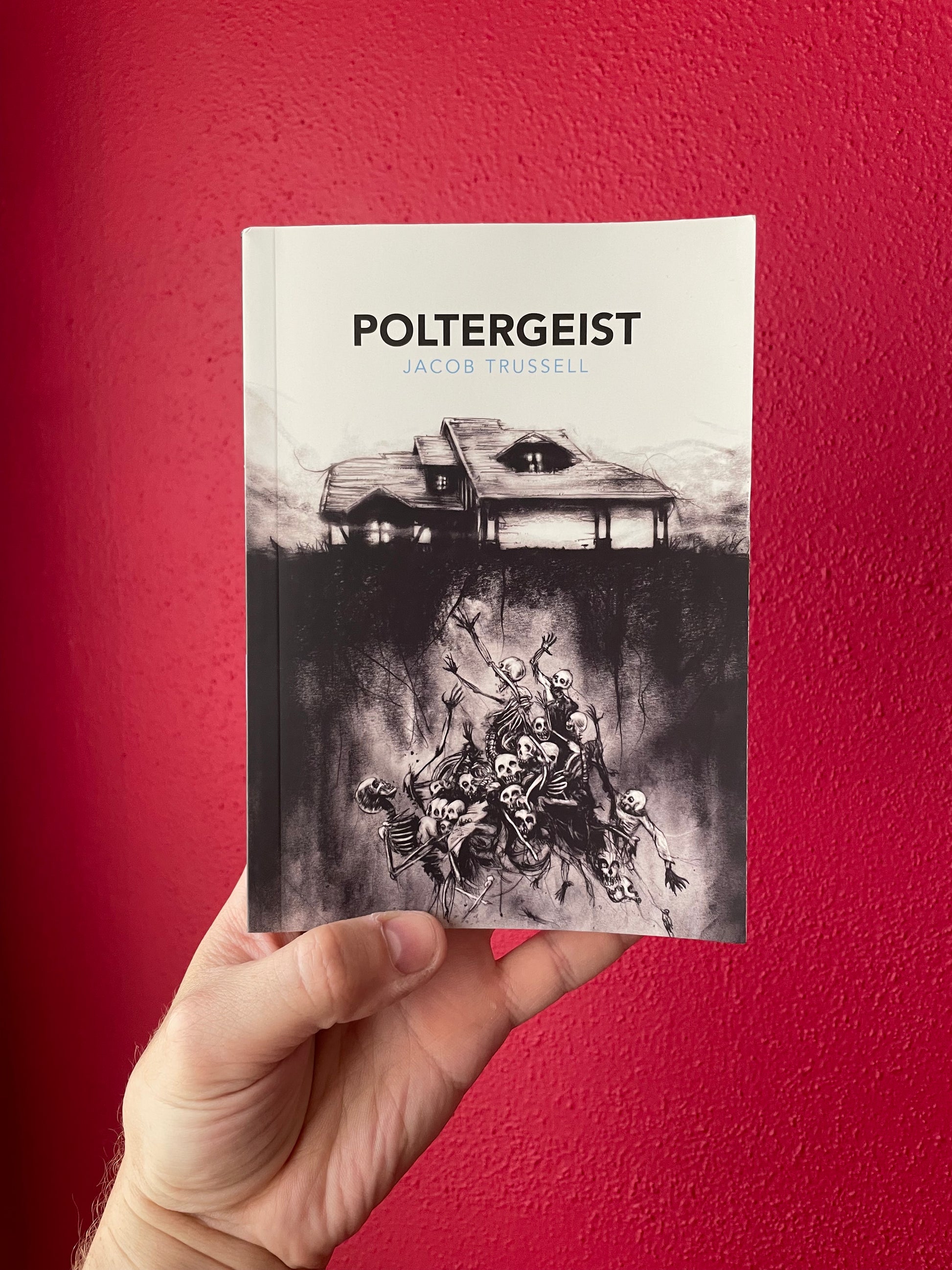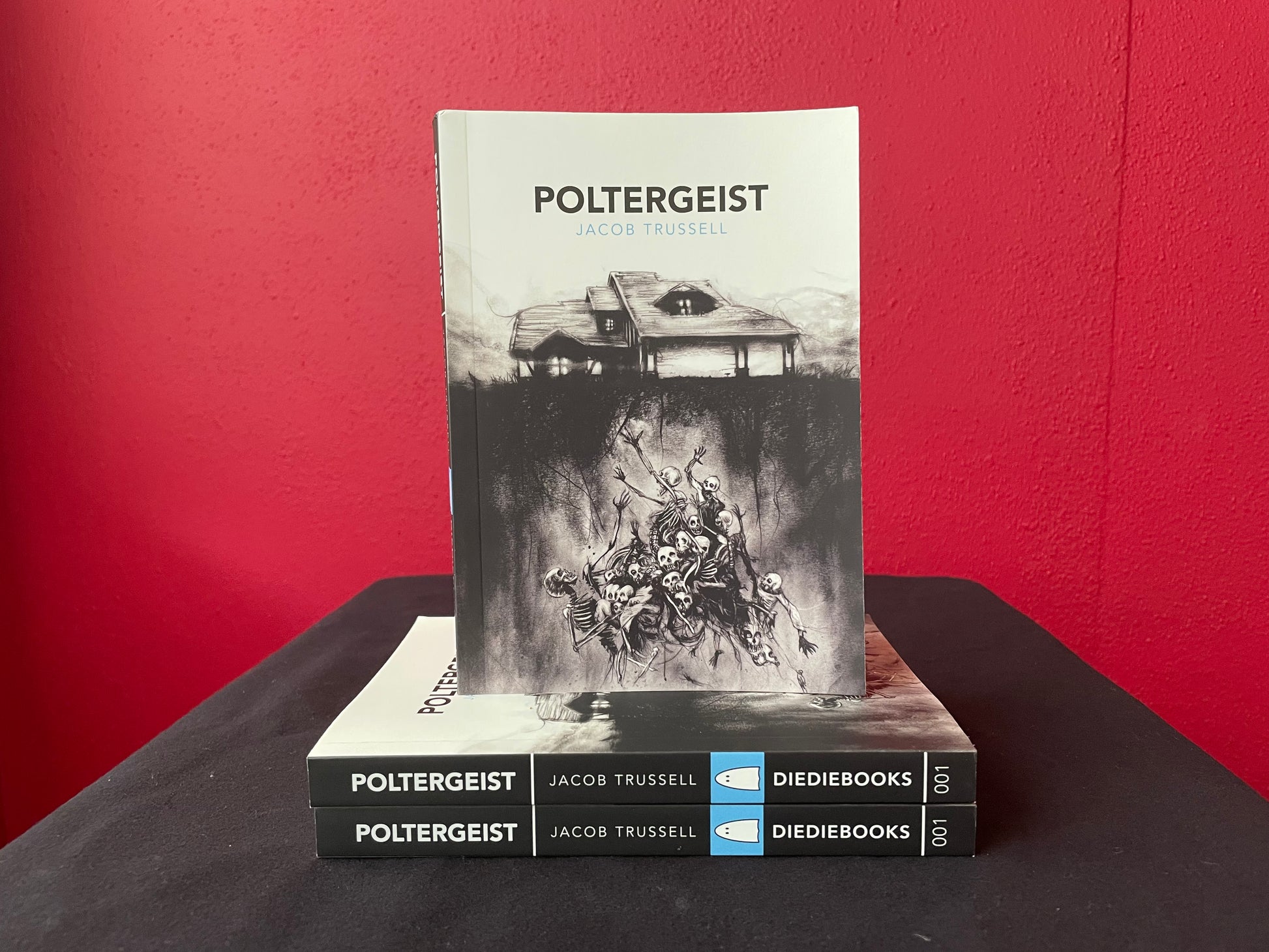Poltergeist by Jacob Trussell
Poltergeist by Jacob Trussell
Couldn't load pickup availability
Tobe Hooper and Steven Spielberg’s 1982 film Poltergeist showed the world a haunted house like we’d never seen before. The film transplanted the Gothic tradition of ghost stories into the saccharine suburban setting of Reagan-era America. Utilizing themes and aesthetics the filmmakers explored in their disparate work throughout the 1970s, Hooper and Spielberg turned their horror story into a pointed indictment of the suburban American Dream.
But was Poltergeist’s criticism of the suburbs by Spielberg’s design, or by Hooper’s?
Through extensive research into the filmmakers' careers and the incendiary media reports and conflicting accounts from cast and crew that bubbled up during and after the film's production, Jacob Trussell explores how Hooper and Spielberg's aesthetic interests coalesced on Poltergeist before their relationship became mired in rumor and speculation in the aftermath of the film's release.
In doing so, Trussell aims to offer context to the question horror fans have been debating for decades: Who really deserves credit for the success of Poltergeist?
Ebook formats
Ebook formats
Ebooks are available in MOBI, EPUB, and PDF formats.
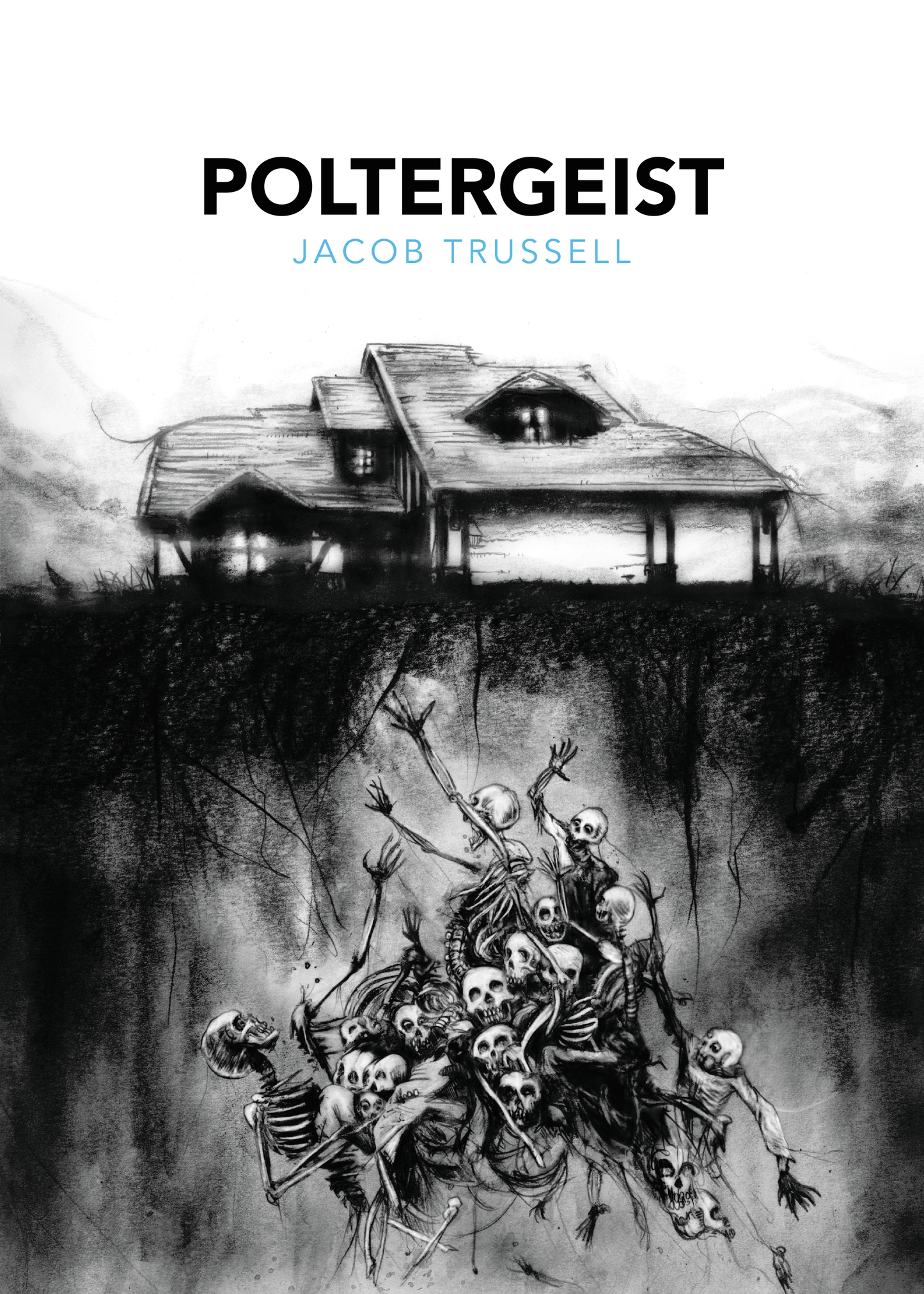
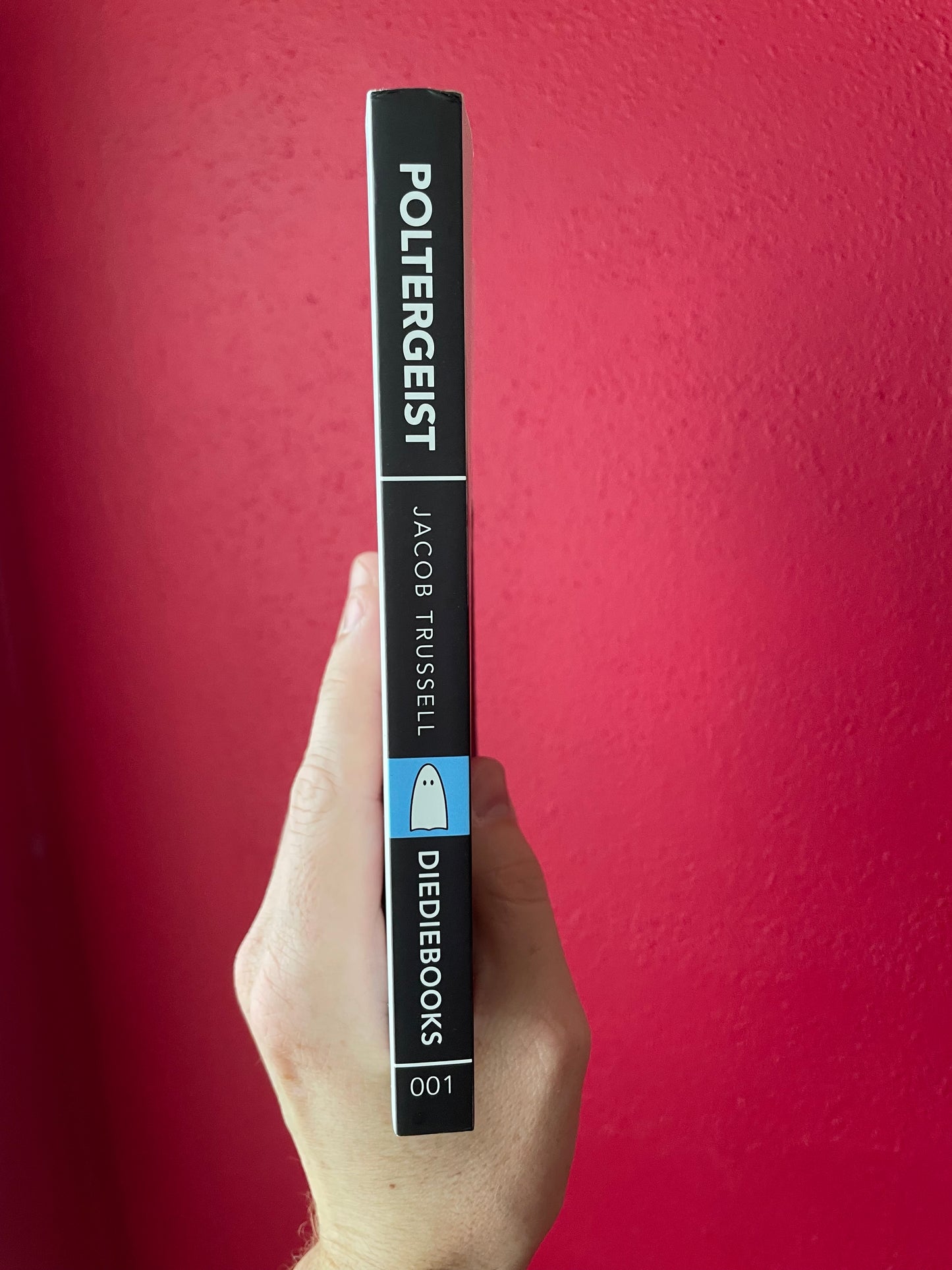
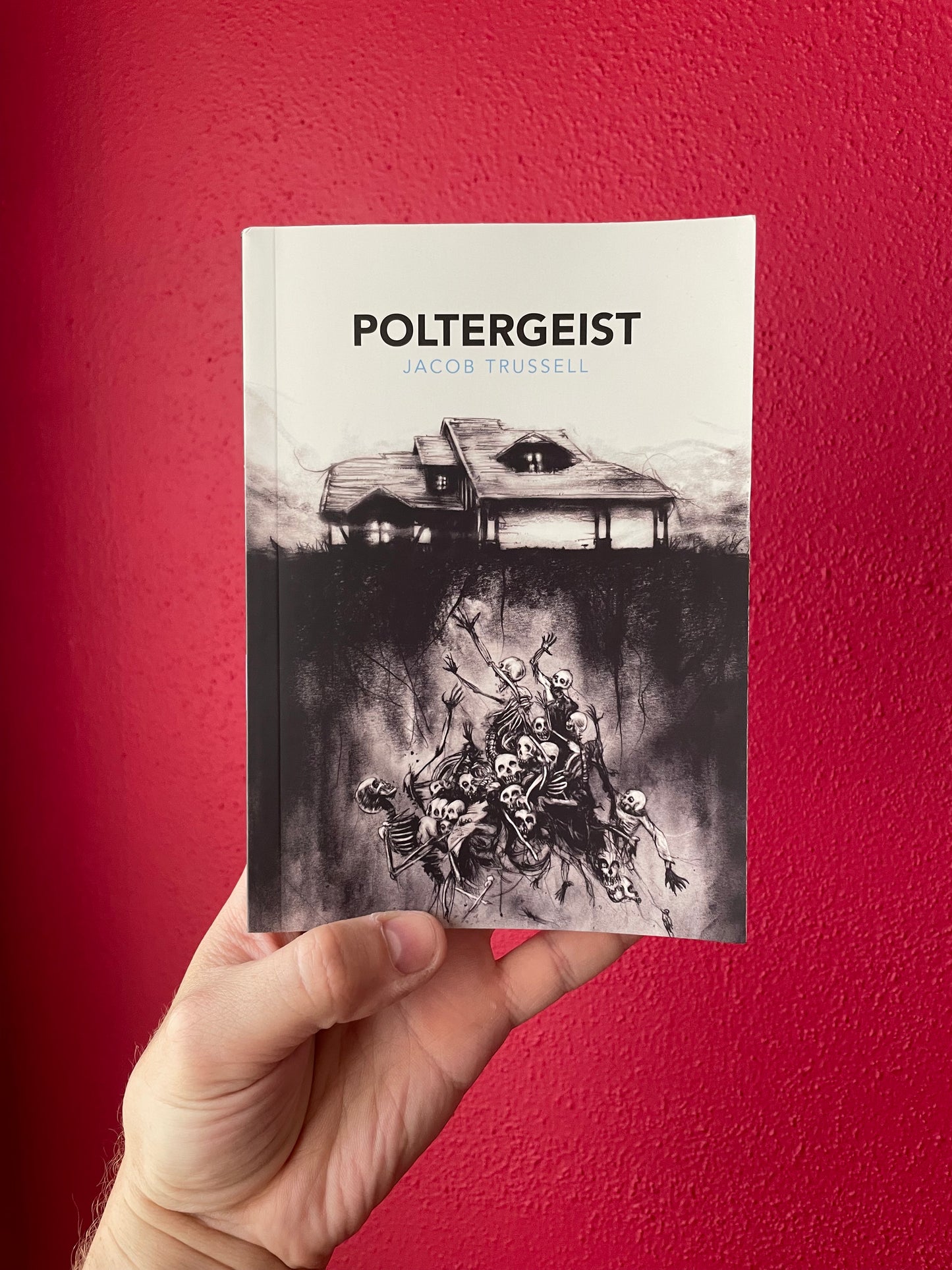
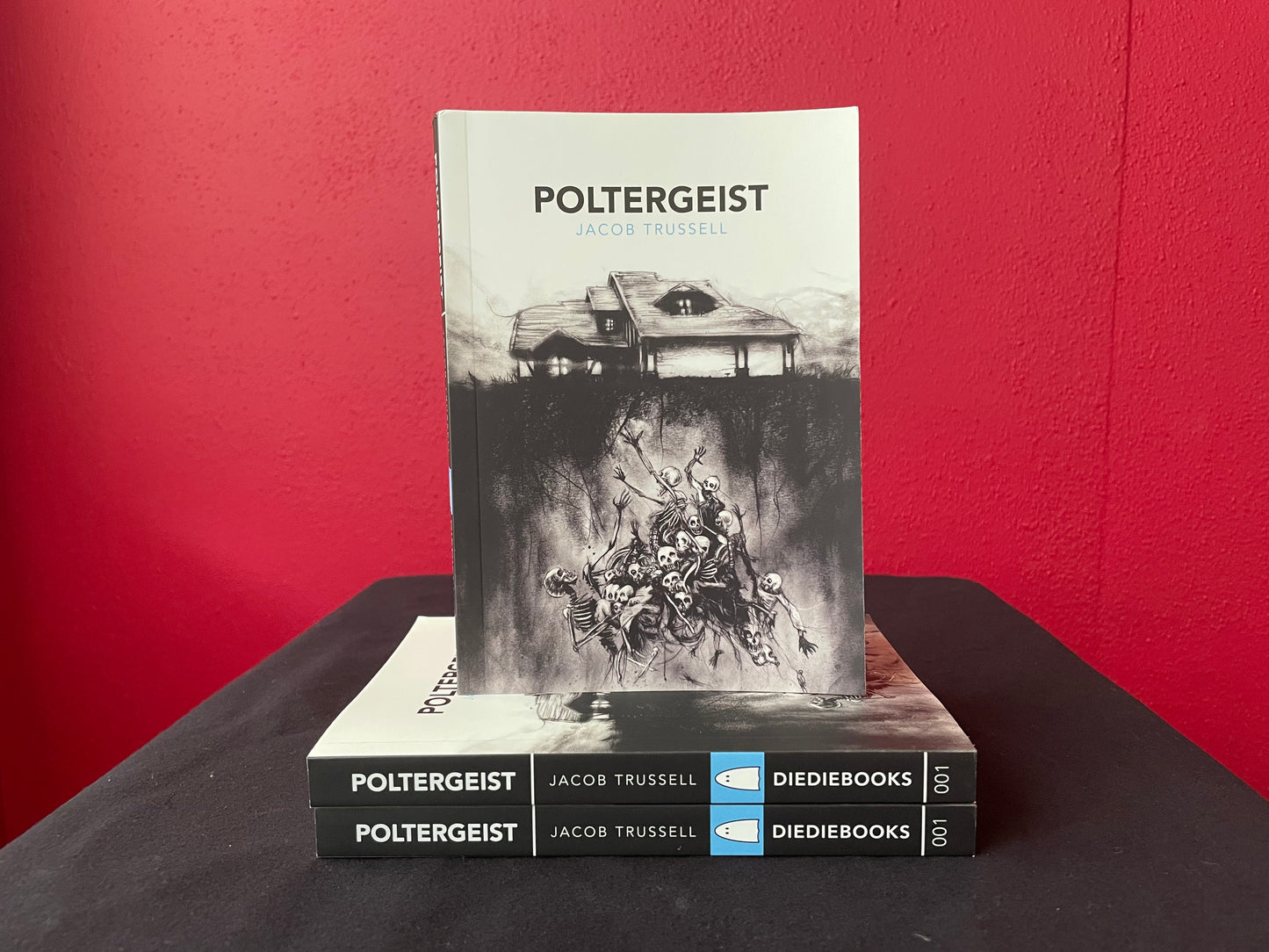
-
— Oliver Robins, "Robbie Freeling" from Poltergeist
"Poltergeist will forever hold a special place in my heart. It was an extraordinary opportunity to work alongside visionary talents like Steven Spielberg and Tobe Hooper, whose guidance and artistry inspired me to pursue my own path in filmmaking. This film changed my life, igniting a lifelong passion that continues to drive my passion to make films."
-
— Owen Egerton, writer/director of Blood Fest
"This book is so damn tasty! Brimming with dazzling scholarship, insightful criticism, and an aficionado's infectious enthusiasm. Trussell uses a favorite film-nerd debate—who really made Poltergeist—as an opportunity to dive into the obsessions, struggles, and creative sensibilities of two remarkable American filmmakers, giving us a glimpse into how films are made and how careers are built (and bruised)."
Reviews for Poltergeist by Jacob Trussell
-
Dread Central
Read more"Jacob Trussell’s Poltergeist is a marvel. This is auteur theory as fellowship, a deeply human and stunningly well-researched account of Poltergeist’s origins and the development of Tobe Hooper’s directorial status into Hollywood myth."
-
Goodreads
Read more"Inhaled this before it could even get listed on this site. Can't recommend this highly enough, an invaluable overview of the whole situation."
EXCERPT FROM POLTERGEIST BY JACOB TRUSSELL
On Controversies and Comments Sections
Click to read an excerpt from the chapter
“It's the difference between a sick note written by a parent or one forged by a child. Not that hard to figure out.”
“Really? I thought this was common sense. The movie has absolutely all of the sensibilities and tropes of a Spielberg flick.”
“One of the greatest things about Spielberg is he's sort of an anti-auteur. He was willing to direct a movie knowing he wouldn't be credited for it.”
“It has a HUGE influence on Speilberg [sic] from that Era. The whole ‘Whimsical-ness’ if you will. Which wasn't something that Toby [sic] Hooper was known for.”
“Wow. People have been speculating that for years, because frankly, it really has more of Spielberg's stamp on it than Hooper.”
“Who cares, Hooper is a hack. His worst of all time, is, not surprisingly the worst horror of all time, the very dull and boring TCM.”
“Even as a kid I knew that the shot of the cars racing past the beer cans was Spielberg. But Tobe Hooper gave POLTERGEIST his unsettling tone.”
“While Hooper was never able to match the level of success of Poltergeist again, Spielberg was never able to capture that true level of horror again either. I've always felt the synergy between the two masters resulted in one of the best horror films ever. Never understood the need to discredit one director over the other.”
“The lack of reference of Hooper was just more evidence of how Hollywood didn't respect or accept one of the great horror directors of the last 100 years.”
“Tobe Hooper was a competent director. This whole thing is a scam.”
"This has been a real rollercoaster of who gives a crap.”
***
There's something deliciously fascinating about why celebrity controversies generate millions upon millions of passionate, angry, and downright mean online comments. A sense of schadenfreude is certainly at work here—the internet relishing in a chorus of privileged bubbles popping all at once, leaving behind messy drama to analyze and scrutinize. Users quickly transform the complicated problems of the rich and famous into vacuous conspiracy theories that can inadvertently cultivate a culture of unhealthy fan loyalty. People come to feel like it’s their civic duty to defend someone they love, but will never know, by waging flame wars on social media, message boards, and website comments sections. So much so that sending legions of followers to mob a single tweet has practically become a global pastime.
Certainly online forums can—and do—inspire pointed commentary and sensible debate, but it’s also the perfect breeding ground for misinformation and personal attacks. The very nature of social media algorithms, pushing the most viral controversies to the top of our feeds, can set off an innate reactionary reflex to get our perspectives out into the world. In the social currency of likes, comments, and shares, our contrarian hot takes become investments in our individual futures, bringing us new followers eager to see what wild thing will be defended next. This boosts our sense of self-importance because as our engagement rates rise, so do the vehement feelings of entitlement that our opinions really are the honest truth—and if you don’t agree, well, you can just like totally fuck off and die, bro.
Controversy stirs up strong emotions, and those emotions can be especially pronounced when the debate is about something as subjective as Hollywood gossip. When our favorite movie stars or films are criticized by random people online, we feel a transference of anger and pain, like something about ourselves is being ripped apart as well. That emotional investment makes us dig even deeper into our opinions because the criticism isn’t just about a celebrity or their movies anymore: it’s about us.
Few film directors of the past fifty years have created such an emotional connection with audiences than Steven Spielberg. His filmography shepherded children of the ’80s and ’90s into a magically realized version of America that was both familiar and fantastic. The suburban neighborhoods in the films he produced and directed felt like supernatural magnets, attracting excitement and adventure into our pre-internet lives. Because he helped us see magic in a world that resembled our own, his films became indelibly interlaced with our own childhood nostalgia.
I myself am a child of Spielberg’s America. Back to the Future, Gremlins, and the Indiana Jones films were all on constant rotation in my house. I remember the crimson red VHS box that Jaws came in when my parents rented the film and the phone conversation with my grandmother warning me about just how scary it is. One of my first experiences of kindertrauma was the jump scare in E.T. when Elliott first sees America’s favorite extraterrestrial pop up in the tall grass behind his house. And despite being unnerved by the alien’s strange look, I was still upset I couldn’t get my picture taken with E.T. during a holiday promotion at Sears.
And then there was Poltergeist, one of the first horror films I ever saw. I actually don't remember a time when the movie wasn’t a part of my life. Growing up, my parents curated an expansive library of films taped off network television, which included this suburban haunted house story. VHS was the format that introduced me to so many horror classics, and like the magnetic tape the films are imprinted on, every moment in Poltergeist has been seared into my mind.
Poltergeist follows Steve and Diane Freeling (Craig T. Nelson and JoBeth Williams), and their children, Dana, Robbie, and Carol Anne (Dominique Dunne, Oliver Robins, and Heather O’Rourke). They live in a swank suburban community called Cuesta Verde just outside of Los Angeles, California. Steve works for the real estate company that developed the subdivision they live in and, with his boss Mr. Teague (James Karen), helped sell many of the homes in their neighborhood.
The Freelings’ sunny life becomes shrouded in darkness when their youngest, Carol Anne, begins to commune with voices speaking to her from their television set. Steve and Diane shrug off her behavior until unexplainable events force them to consider that Carol Anne’s “TV people” aren’t just inventions of an active imagination. During a fateful storm that rips Robbie out of his bed and into the night, Steve and Diane rush to his rescue. But as they leave Carol Anne in the house by herself, a portal opens in her closet, dragging her into a netherworld. Hearing their daughter’s frightened cries, the family quickly scours the house, only for Robbie to realize Carol Anne’s voice isn’t coming from somewhere inside their home, but from somewhere inside their television.
This begins a race against time for the Freelings to find a way to bring Carol Anne back to the world of the living before she’s trapped in the great beyond forever. Desperate for help, the Freelings contact paranormal psychologist Dr. Lesh (Beatrice Straight) and her team of investigators (Richard Lawson and Martin Casella), who quickly realize they’ve never experienced supernatural phenomena quite like this before. Just as Steve discovers their home was built atop an old local cemetery, which Mr. Teague allegedly relocated when the subdivision was first constructed, the parapsychologists contact powerful psychic Tangina Barrons (Zelda Rubinstein) for backup. With her spiritual know-how, Tangina devises a plan of attack to save the Freelings’ daughter from a beast that “knows what scares you” before their suburban home is swallowed whole by a spectral force.
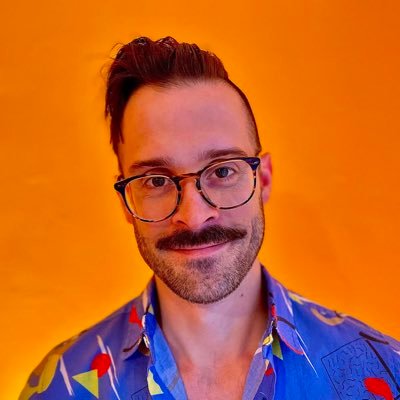
Jacob Trussell is a writer based in Brooklyn, New York with a focus on the horror genre. His work has been featured on the BBC, NPR, One Perfect Shot, Film School Rejects, and Rue Morgue magazine. His first book, The Binge Watcher’s Guide to The Twilight Zone, was released by Riverdale Avenue Books in 2021. Available to host your next spooky public access show. Find him on Twitter: @JE_TRUSSELL
